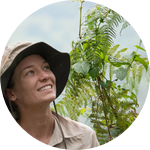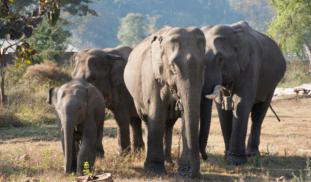Please wait...
About This Project
Elephant endotheliotropic herpes virus hemorrhagic disease (EEHV-HD) is the leading cause of death of young Asian elephants in North America and Europe, and suspected to occur in Myanmar. We will validate EEHV testing methods for feces and chewed plants, samples that can be easily collected, to enable a longitudinal study of EEHV epidemiology in captive and wild elephant herds in Myanmar. The ultimate goal is to identify management-related mitigation strategies for this devastating disease.

Browse Other Projects on Experiment
Related Projects
Disrupting cancer cell signaling through drug discovery
Most cancer-related deaths are caused by metastasis, the spread of cancer cells to distant tissues. This...
CaniSense– AI-powered blood test for early cancer detection in dogs
Cancer is the leading cause of death in dogs, yet no reliable methods for early screening exist. At testblu...
Shutting down cancer’s recycling system with exosome-based therapy
Pancreatic cancer is one of the deadliest cancers because its cells survive by recycling their own components...


